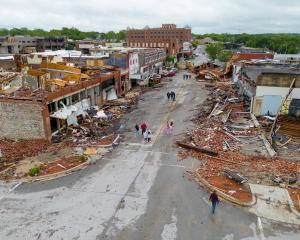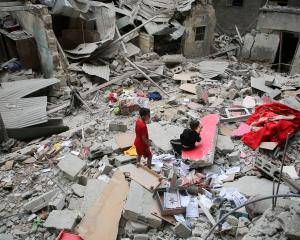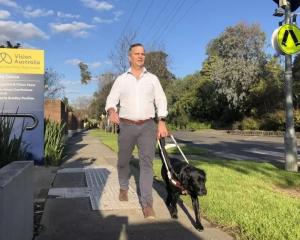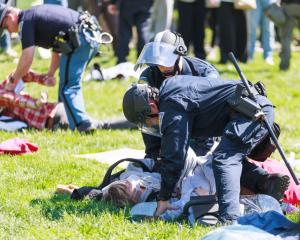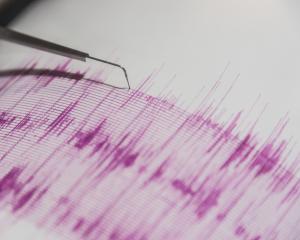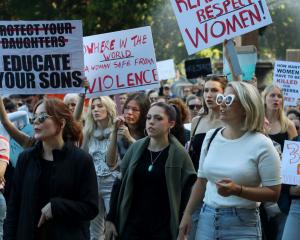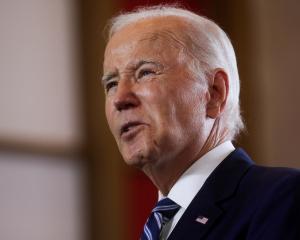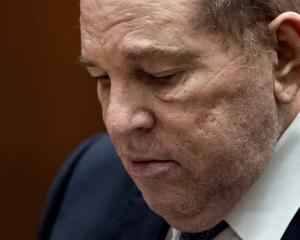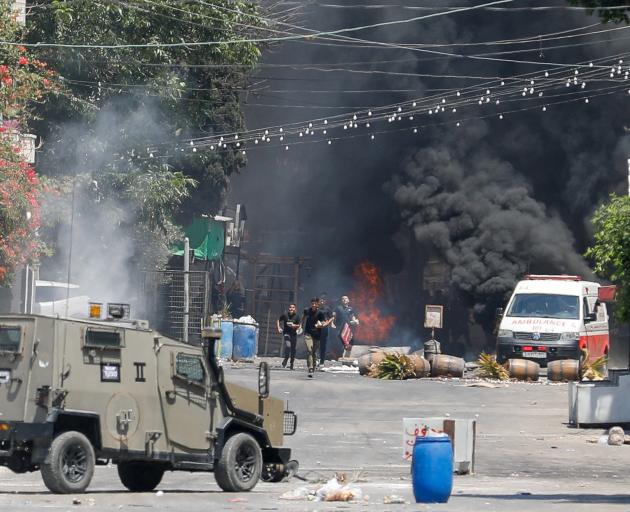
Gunfire and explosions were heard throughout the day as clashes continued between Israeli troops and fighters from the Jenin Brigades, a unit made up of militant groups based in the city's crowded refugee camp.
"What is going on in the refugee camp is real war," said Palestinian ambulance driver Khaled Alahmad. "There were strikes from the sky targeting the camp, every time we drive in, around five to seven ambulances and we come back full of injured."
At times during the morning, at least six drones could be seen circling over the city and the adjoining camp, a densely packed area housing around 14,000 refugees in less than half a square kilometre.
The camp has been at the heart of an escalation of violence across the West Bank that has triggered mounting alarm from Washington to the Arab world, without so far opening the way to a resumption of political negotiations that have been stalled for almost a decade.
For more than a year, army raids in cities such as Jenin have become routine, while there have been a series of deadly attacks by Palestinians against Israelis and rampages by Jewish settler mobs against Palestinian villages.
The Palestinian health ministry confirmed at least eight people had been killed and more than 50 wounded in Jenin, while another man was killed in Ramallah overnight, shot in the head at a checkpoint.
The Israeli military said its forces struck a building that served as a command centre for fighters from the Jenin Brigades with what it called "precise" drone strikes using small payloads. It described the operation as an extensive counter-terrorism effort aimed at destroying infrastructure and disrupting militants from using the refugee camp as a base.
As the operation proceeded, Israeli armoured bulldozers ploughed up roads in the camp to dig up concealed improvised explosive devices, cutting water and electricity supplies, the Jenin municipality said as residents described soldiers breaking through the walls to pass from house to house.
"Nothing is safe in the camp. They dug up the roads with bulldozers. Why? What did the camp do?" said Hussein Zeidan, 67, as he recovered from his wounds in hospital.
In Washington, the State Department said it was closely tracking the situation in Jenin. A State Department spokesperson said it was imperative that all possible precautions be taken to prevent the loss of civilian lives.
An Israeli military spokesman said the operation would last as long as needed and suggested forces could remain for an extended period. "It could take hours, but it could also take days. We are focused on our goals," he said.
Until June 21, when it carried out a strike near Jenin, the Israeli military had not used drone strikes in the West Bank since 2006. But the growing scale of the violence and the pressure on ground forces meant such tactics may continue, a military spokesman said.
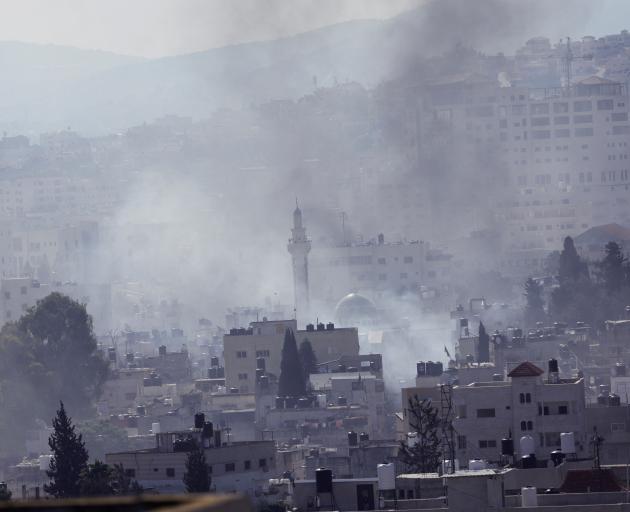
'HORNETS NEST'
Monday's operation, involving a force described as "brigade-size" - suggesting around 1,000-2,000 troops - was intended to help "break the safe haven mindset of the camp, which has become a hornets nest," the spokesman said.
Its apparent scale underlined the importance of the Jenin camp in violence that has further exposed the impotence of the Palestinian Authority to impose its writ over towns in the West Bank, where it holds nominal governance powers.
Palestinian President Mahmoud Abbas said he was suspending contacts with Israel and called for "international protection for our people". UN Middle East envoy Tor Wennesland said he was talking with all parties to de-escalate and ensure humanitarian access.
Hundreds of fighters from militant groups including Hamas, Islamic Jihad and Fatah are based in the camp, which was set up 70 years ago to house refugees in the aftermath of the 1948 war that accompanied the creation of Israel. The fighters have an array of weapons and a growing arsenal of explosive devices.
The Israeli military, which regularly accuses militant groups of basing fighters in civilian areas, said troops seized an improvised rocket launcher and hit a weapons production and explosives storage facility with hundreds of devices ready to be used as well as radios and other equipment.
It said it had also found weapons in a mosque where fighters had barricaded themselves inside in an underground section.
It was unclear whether the incursion would trigger a wider response from Palestinian factions, drawing in militant groups in the Gaza Strip, the coastal enclave controlled by militant Islamist group Hamas.
Saleh Al-Arouri, accused by Israel of leading the Hamas military wing in the West Bank, told Aqsa TV that fighters in Jenin should try to capture Israeli soldiers.
"Our fighters will rise from everywhere, and you will never know where the new fighter will come from," he said.
Israeli Defence Minister Yoav Gallant said his forces were "closely monitoring the conduct of our enemies," with the defence establishment "ready for all scenarios."
Following the last major raid in Jenin in June, Palestinian gunmen killed four Israelis near a Jewish settlement in the West Bank. That led to a rampage by mobs of settlers in Palestinian villages and towns.
Israel captured the West Bank, which the Palestinians see as the core of a future independent state, in the 1967 Middle East war. Following decades of conflict, peace talks that had been brokered by the United States have been frozen since 2014.

